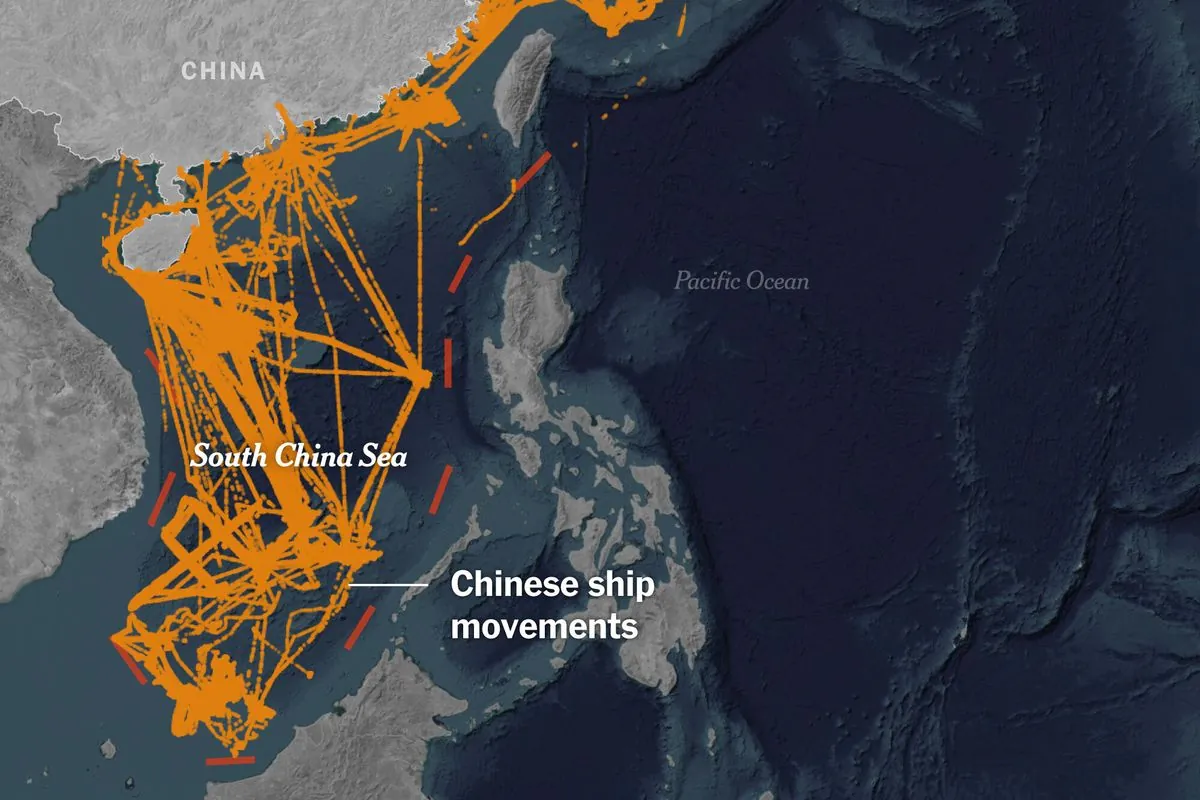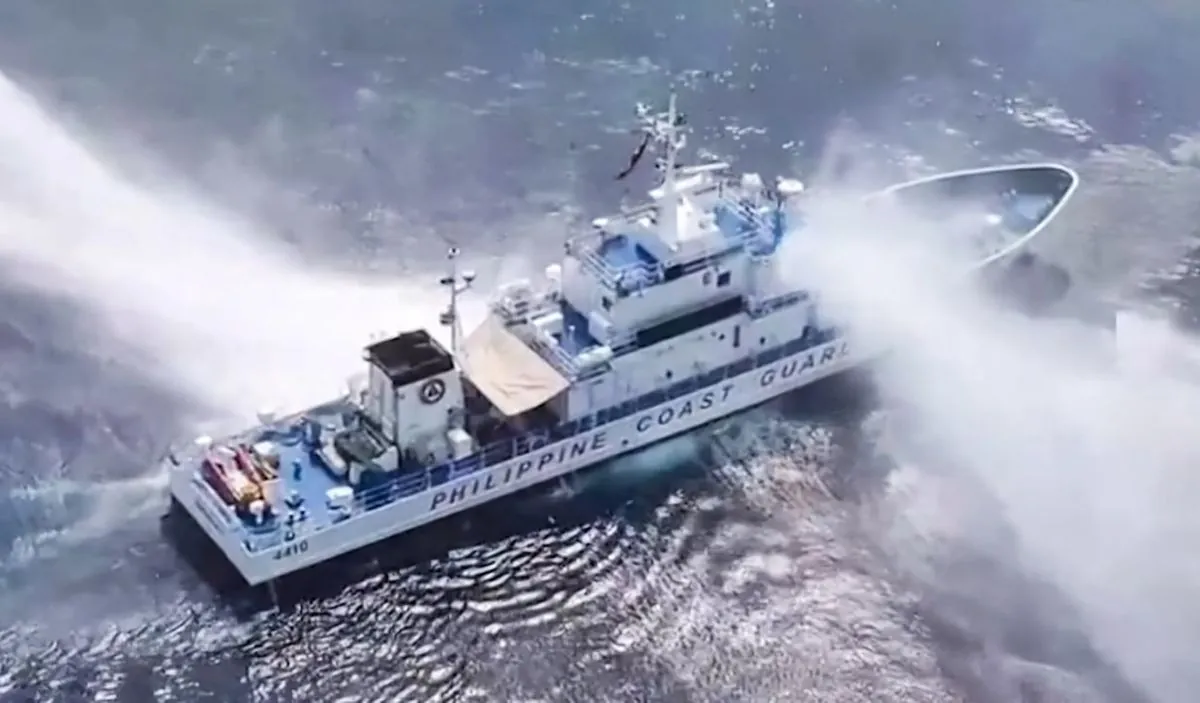Philippines Confronts China Over Air Incident and Missile Concerns
Philippines reports Chinese helicopter shadowing its aircraft near Scarborough Shoal, escalating tensions. Defense officials rebuke China's concerns over U.S. missile system, highlighting ongoing South China Sea disputes.

In a recent development highlighting the ongoing tensions in the South China Sea, the Philippines has reported a confrontation with China near the disputed Scarborough Shoal. The incident, which occurred on September 20, 2023, involved a Chinese navy helicopter shadowing and approaching a Philippine fisheries bureau aircraft on patrol.
The Philippine National Security Council (NSC) stated that despite the encounter, their aircraft successfully completed its mission. This event marks the latest in a series of air and sea confrontations between the two nations, which have been embroiled in territorial disputes over various areas of the South China Sea for years.
Gilberto Teodoro, the Philippine Defense Secretary, has accused China of interfering in the country's internal affairs. He specifically addressed Beijing's concerns over the Philippines' use of a U.S. mid-range missile launcher for training purposes. The Typhon system, capable of firing various types of missiles, has been a point of contention, with China expressing alarm over its deployment.
"China is saying that they are alarmed, but that is interference into our internal affairs. Why don't they lead by example? Destroy their nuclear arsenal. Remove all their ballistic missile capabilities. Get out of the West Philippine Sea, and get out of Mischief reef."
The Scarborough Shoal, located 200 km off the Philippine coast within its exclusive economic zone (EEZ), has been a focal point of disputes. China has occupied the shoal with its coast guard for over a decade, claiming it as part of its territory based on historical maps. The shoal, named after a British vessel that ran aground there centuries ago, is valued for its rich fishing grounds and picturesque lagoon.
In 2016, the Permanent Court of Arbitration in The Hague ruled that China's expansive claims in the South China Sea were not supported by international law. However, Beijing has refused to recognize this decision. The tribunal did not determine sovereignty over the Scarborough Shoal, acknowledging it as a traditional fishing ground for several countries.

The South China Sea, a marginal sea of the Western Pacific Ocean, is of significant strategic importance. It is estimated to hold substantial oil and natural gas reserves and serves as a major global shipping route. China's "nine-dash line" claim covers approximately 90% of this vital waterway, conflicting with the territorial claims of several Southeast Asian nations.
The United States has played a role in the region's dynamics, conducting "freedom of navigation" operations and maintaining defense agreements with the Philippines. The Mutual Defense Treaty, signed in 1951, and the more recent Enhanced Defense Cooperation Agreement (EDCA) of 2014 underscore the longstanding military alliance between the two countries.
Romeo Brawner, the Philippine military chief, expressed his desire for a permanent U.S. missile presence in the country, stating, "I would like to have the Typhons here in the Philippines forever." This statement reflects the Philippines' strategy to bolster its defense capabilities in the face of regional tensions.
As an archipelagic nation comprising over 7,600 islands, the Philippines has been actively asserting its maritime rights. The country's Department of National Defense oversees these efforts, working within the framework of the United Nations Convention on the Law of the Sea (UNCLOS) to address territorial disputes.
The ongoing situation in the South China Sea continues to be a complex issue involving multiple stakeholders. The Association of Southeast Asian Nations (ASEAN) has been involved in negotiations for a Code of Conduct in the South China Sea, aiming to establish a set of rules for the region. However, progress on this front has been slow, with tensions persisting between claimant states.
As the Philippines and China continue to spar over territorial issues, the international community watches closely. The recent air incident and the debate over missile systems serve as reminders of the delicate balance of power in the region and the potential for escalation in this strategically crucial maritime area.


































